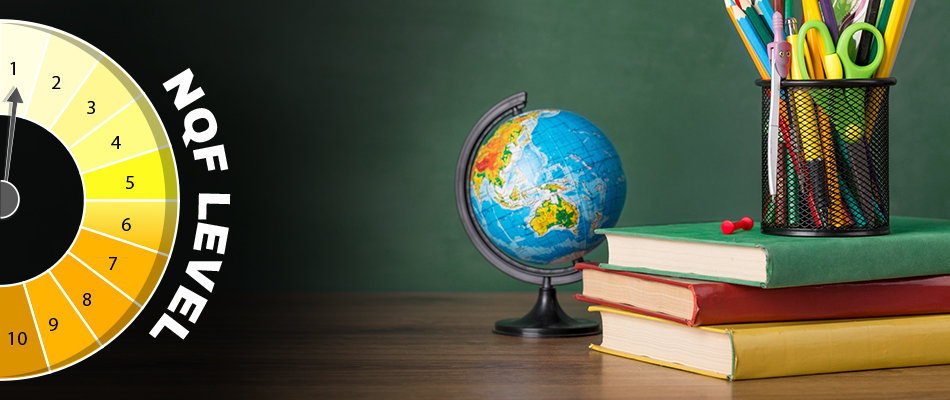In South Africa’s diverse educational landscape, the Bachelor of Technology (BTech) degree is preferred by students aiming to acquire practical skills in engineering, business, and IT. Unlike traditional academic routes, BTech programmes span three to four years, highlighting hands-on learning and practical application of knowledge. This approach encourages students to learn vital technical abilities and prepares graduates for real-world scenarios. Understanding its classification on the National Qualifications Framework (NQF) is crucial, as it delineates how the BTech integrates academic learning with practical experience, improving graduate’s competitiveness in today’s job market.
In this article, let’s discuss what NQF level is a Btech degree, the importance of NQF levels and the Btech specialisations you can pursue.
Table of Contents
What Is A BTech Degree?
A Bachelor of Technology (BTech) degree is an undergraduate programme that provides students with practical and industry-related skills in fields like engineering, business, and information technology. It is a favoured degree amongst science students after completing their matriculation. The BTech is a full-time course that covers a wide range of subjects, including Computer Science, Civil, Mechanical, Electronic Engineering, and Information Technology. Unlike traditional degrees, a BTech focuses more on practical knowledge and hands-on training rather than just theory.
After getting a BTech degree, learners have many opportunities for further education, such as a Master in Technology (MTech) or a Master in Business Administration (MBA), which can boost their job prospects. This degree offers a wide variety of career options in different technical fields, both in the private and public sectors, due to its focus on technical skills, problem-solving, and real-world application.
NQF Levels Explained In Detail
The National Qualifications Framework (NQF) is an important differential system that shows the level of qualifications students have achieved. It ensures that individuals clearly understand their educational level and consider the necessary qualifications to advance their careers. The higher the NQF Level, the higher the qualification, making it clear how to progress in education and careers.
For instance, a Matric Qualification is at NQF Level 4, while a Bachelor’s Degree is at NQF Level 7. These levels show the big differences between types of qualifications. The requirements and what you learn at each level are very different. At NQF Level 4, students focus on basic language skills, basic math skills, reading, and writing. On the other hand, NQF Level 7 involves a deep understanding of a specific field of study.
Main Purpose Of The NQF
The NQF provides a clear and structured path, helping students and professionals find their way in academics and jobs. It promotes equal opportunities and high standards in education for everyone. The main goal of the NQF is to help individuals grow by allowing students to move forward from one NQF Level to the next. This system aims to:
- Resist against unfair treatment in education, training, and jobs, especially for people of colour and women
- Create a single system to show qualification levels
- Make education better than it was in the past
- Make sure everyone can access educational resources, no matter their race, background, sex, status, or location
What NQF Level Is A BTech Degree?
The Bachelor of Technology (BTech) degree is highly respected for providing practical and advanced knowledge across different subjects. Understanding the Btech degree NQF level is important for students and employers alike. This framework ensures that educational qualifications in South Africa are consistent and clear. Let’s look at the NQF level of the BTech degree, why it’s noteworthy, and the credits required to earn this qualification.
NQF Level For BTech Degree In South Africa
The Bachelor of Technology (BTech) degree is classified at NQF Level 7 in South Africa’s education system. This ranking highlights the BTech’s role in providing broad knowledge and practical skills across different subjects.
At Level 7, this qualification shows a strong understanding of specific fields, combining solid theoretical foundations with hands-on experience. Graduates gain advanced problem-solving skills and can apply what they’ve learned in real-world situations, making them highly valued in the job market for their technical abilities and professional readiness.
Btech NQF Level Credits
Alongside its Level 7 status, a BTech degree usually requires completing 120 credits for eligibility. These credits cover various modules that focus on developing specific skills—from basic theories to practical applications. Each credit represents the workload, including classes, practical work, assignments, and independent study.
It’s important to note that Btech NQF level credit requirements may vary among South African universities, ranging from 120 to 480 credits. This flexibility allows schools to customise programmes to meet academic standards and industry demands, ensuring graduates are well-prepared for diverse career opportunities in their chosen fields.
Other BTech Specialisations And Their NQF Levels
BTech programmes go beyond the usual subjects to offer many specialised options that fit specific industry needs. Each specialisation has its own NQF (National Qualifications Framework) level, which shows how much knowledge and skills are needed. Let’s take a look at some Bachelor of Technology NQF levels for specialisations:
| Programme | NQF Levels |
| Bachelor Of Engineering Technology In Chemical Engineering | Level 8 |
| Bachelor Of Engineering Technology In Civil Engineering | Level 8 |
| Bachelor Of Engineering Technology In Computer Engineering | Level 8 |
| Bachelor Of Engineering Technology In Electrical Engineering | Level 7 |
| Bachelor Of Engineering Technology In Management Science | Level 6 |
| Bachelor Of Engineering Technology In Biotechnology | Level 7 |
| Bachelor Of Engineering Technology In Information Technology (IT) | Level 7 |
| Bachelor Of Engineering Technology In Hospitality Management | Level 7 |
Conclusion
In conclusion, the Bachelor of Technology (BTech) degree is valued in South Africa’s education system for its focus on practical skills in fields like engineering, business, and IT. We hope this article provides clarity on the question: What NQF level is a Btech degree? To put it simply, the Btech NQF Level in South Africa is 7, which indicates a strong grasp of specific subjects and hands-on experience. This degree not only boosts graduate’s technical skills but also helps them solve real-world problems effectively. With many specialisations available, each at its own NQF level, the BTech opens up various career paths in both public and private sectors. By blending theory with hands-on learning, the BTech is a great choice for students aiming to succeed in today’s competitive job market.
What NQF Level is a BTech Degree in South Africa? – FAQs
What NQF level is a BTech degree?
In South Africa, a Bachelor of Technology (BTech) degree is at NQF Level 7. This means the degree provides both theoretical knowledge and practical skills, preparing graduates for various technical and professional jobs.
What is the NQF level for BTech Engineering degrees?
Most BTech Engineering programmes, such as Chemical Engineering, Civil Engineering, and Computer Engineering, are at NQF Level 8. This higher level indicates that these programmes offer advanced theoretical knowledge and practical skills.
How many credits are needed for a BTech degree at NQF Level 7?
To complete a Bachelor of Technology (BTech) degree at NQF Level 7, students usually need to earn 120 credits. These credits include a mix of theoretical learning and practical work, ensuring students gain a good understanding of their field.
Why is understanding the NQF level of a BTech degree important?
The NQF level for a BTech degree is important because it shows the qualification’s depth and complexity. An NQF Level 7 for a BTech degree highlights its focus on practical skills and problem-solving abilities, making graduates more competitive in the job market.
Do different BTech specialisations have different NQF levels?
Yes, different BTech specialisations can have different NQF levels. For example, while a general BTech degree is at NQF Level 7, specialisations like Bachelor of Engineering Technology in Chemical Engineering and Civil Engineering are at NQF Level 8. This difference shows the varying levels of expertise and knowledge needed for each specialisation.






